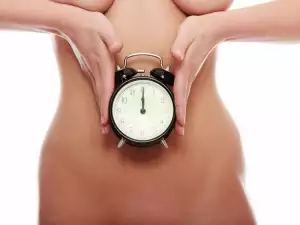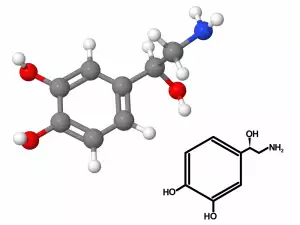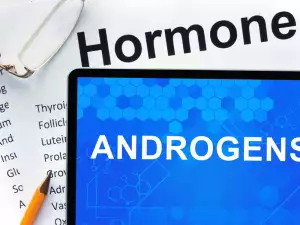Testosterone is a steroid hormone belonging to the group of sex hormones. It is secreted mainly by the testicles of males and ovaries of females but small amounts are also secreted by the adrenal glands. Testosterone is the primary male hormone and an anabolic steroid.
As in men, in women testosterone plays a key role for health and good physical condition. Along with sexual activity, which includes regulation of the libido, fertility and muscle mass, testosterone helps increase energy. Normally, makes produce 40-60 times more testosterone than women but women are more sensitive to this hormone.
When testosterone enters the bloodstream, it is transported to target organs and tissues, where it is transformed into dihydrotestosterone. This is the active form of testosterone. Dihydrotestosterone is roughly 10 times more active than testosterone and is directly responsible for baldness and voice changing. Unfortunately, it has a negative impact on the prostate - often it stimulates the formation of cancer in the area.
Functions of Testosterone

Testosterone plays a wide range of important functions in the human body. It lowers cholesterol levels, helps bone growth, increases synthesis of proteins.
In men, testosterone helps form secondary sexual characteristics and regulates steroid production. It is responsible for hair growth, development of the penis, prostate, Adam's apple. Testosterone coordinates muscle formation and muscle tissue degradation.
It's important to note that testosterone is the only hormone that determines male character. The ratio between testosterone and the female hormone estradiol (which is also produced in the male body) is of utmost importance.
Testosterone stimulates sebaceous glands in the skin, increases the desire for sex and provokes aggressive behavior.
Thanks to testosterone, sensitivity to pain is decreased, pheromones are released, it can lead to scalp hair loss. Testosterone stimulates spatial awareness. For example - it's been proven that women with low serum levels of testosterone experience difficulties in parking a car.

The cerebral cortex stimulates testosterone secretion when a person is happy and aroused, exactly when the body has need of it. But when a person is tense or upset, the rate of testosterone production quickly dwindles.
Normal Levels of Testosterone
Normal levels of testosterone are between 300 – 1200 ng/dl for men; 20-75 ng/dl for women. Free testosterone in men is between 15-45 pg/ml and 1-3 pg/ml in women.
High Levels of Testosterone
High levels of the hormone in the body can bring about serious negative consequences. Excessively high levels of testosterone lead to an increased risk of tumor formation in the liver and kidneys, disrupted cardiac rhythm and a series of other cardiological problems.
A higher tendency toward formation of dangerous brain thrombosis has also been found. High doses of the testosterone can cause severe psychological conditions as well, often long-term and difficult to treat.

Long-term intake of large amounts of the hormone in the body has been observed to disrupt spermatogenesis. In women, side effects of high levels of testosterone are expressed in increased hair growth, irregular periods, gaining of male facial features. An absence of ovulation may also occur.
Low Levels of Testosterone
Low levels of the hormone can also lead to adverse effects, such as low self-esteem, lack of libido, a feeling of weakness and a general absence of tone.
Symptoms of low testosterone levels are afternoon drowsiness, fat gain in the stomach region, absence of a morning erection, difficulty in getting erections, weakening of the muscles. These are all symptoms characteristic for older individuals. The cause of the symptoms needs to be found in similar cases.
If no measures are taken if suffering from low levels of testosterone, a number of dangers have been observed: vascular problems, stroke and heart attack. Another negative consequence is the development of osteoporosis.
















Comments